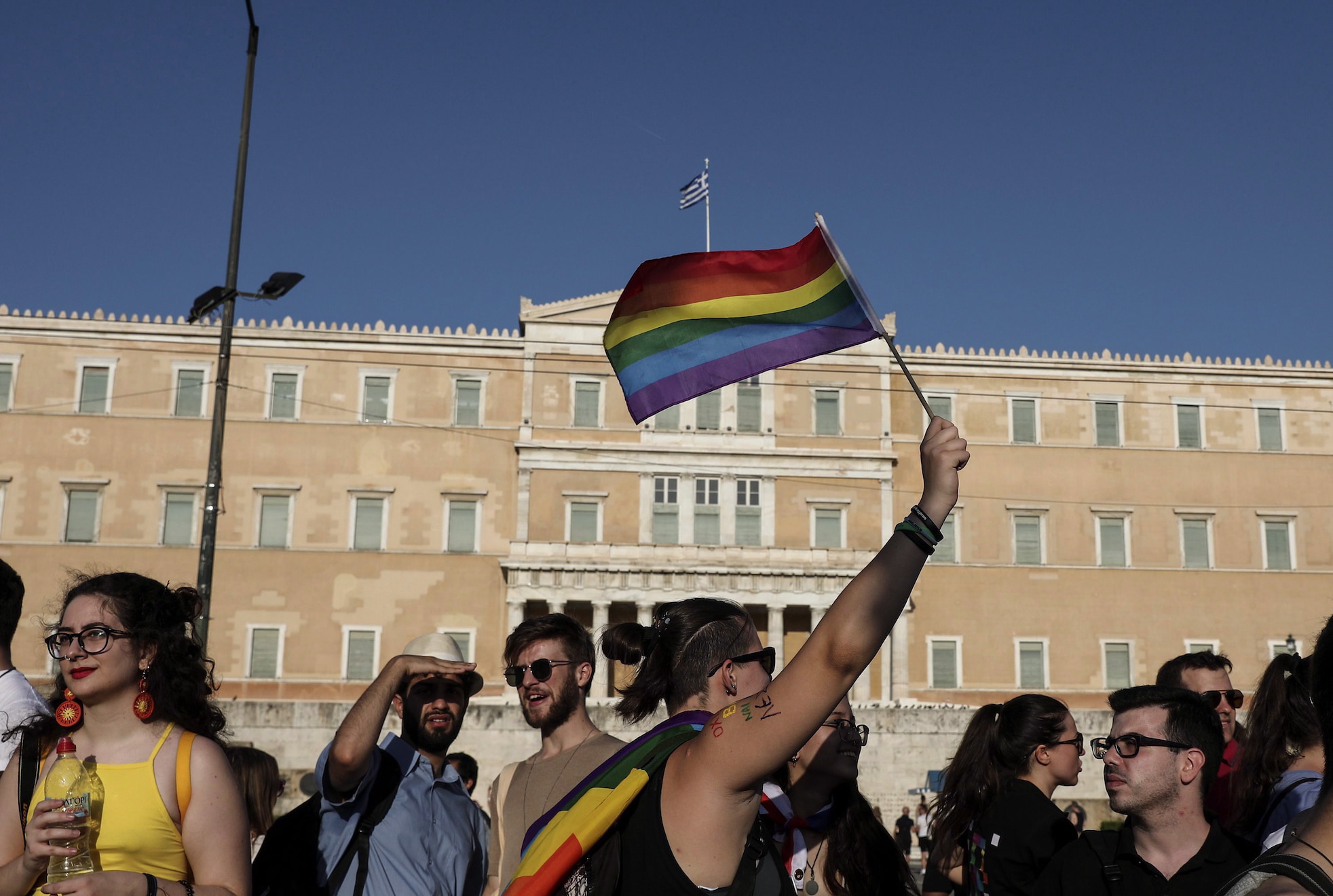Greece outlawed conversion therapy this week as nations around the globe join in taking action against a practice criticized by leading advocacy groups as harmful.
Approved on May 11 by the Hellenic Parliament, the bill pertains solely to minors. The legislation forbids conversion therapists from advertising the services they offer, and violators of the statute face fines and potential jail time, according to Reuters.
In a speech delivered earlier this week, Health Minister Thanos Plevris told members of parliament that conversion therapy is “not supported scientifically.” The term refers to a loosely defined set of approaches ranging from talk therapy to—in rare cases—shock treatment, and such practices have been likened to “torture” by human rights authorities with the United Nations.
Groups like the World Health Organization and World Psychiatric Association have also joined in condemning conversion therapy.
“There were some false treatments that stated that when a minor has chosen a different sexual orientation, his parents could supposedly proceed with ‘treatments’ for this child to ‘return to normality,’” Plevris said. He went on to add that, despite its name, conversion therapy is “not therapy.”
“No one can truly consent to abusive conversion practices.”
The health minister also signalled that Greece is prepared to take action against non-consensual surgeries on intersex children. According to experts, an estimated 1.7 percent of infants are born with genitalia that do not align with normative definitions of male and female. These children are frequently subjected to surgeries intended to alter their bodies before youth and before their families have the appropriate information to make an informed decision.
Very few countries outlaw surgeries on intersex infants. Malta became the first to do so in 2015, followed by Albania in 2020 and Germany in 2021. These bans, however, have come under fire for loopholes that could allow non-consensual operations to continue in practice. Germany’s law, for instance, requires a formal diagnosis that a child is intersex.
A 2020 report found that intersex infants were still being subjected to corrective surgeries in Malta, despite its ban.
Critics are concerned that similar blind spots in Greece’s conversion therapy law could make the ban ineffective at preventing patients from undergoing reparative treatments. The legislation specifies that practitioners must obtain “explicit consent” before conversion therapy can be performed on a minor, and LGBTQ+ advocacy groups say youth could still be coerced into the treatment by family members or faith leaders.
The U.K.’s proposed conversion therapy ban, which was unveiled this week, came under fire under similar grounds. The draft law also does not prohibit treatments intended to change a patient’s gender identity and allows conversion therapy to continue in religious settings.
LGBTQ+ advocacy groups were extremely critical of the U.K.’s bill, which drew public protests last month for excluding trans people.
“No one can truly consent to abusive conversion practices,” a spokesperson from Stonewall, the U.K.’s largest LGBTQ+ nonprofit organization, said in an email to Xtra earlier this week. “The U.K. government must stop playing politics with our lives and introduce a ban with no loopholes, that protects all LGBTQ+ people.”
Greece has made significant advances on LGBTQ+ rights in recent years. In January, the country lifted a policy that had been on the books since 1977, barring gay and bisexual men from donating blood. The country has banned discrimination on the basis of both sexual orientation and gender identity in areas like employment and housing since 2015, and allows trans people to correct their legal gender without first undergoing surgery.
Full marriage equality has yet to be recognized in Greece, however; although same-sex couples are allowed to apply for civil unions.
Greece recently ranked 17th on the LGBTQ+ advocacy group ILGA’s annual Rainbow Europe index, which grades European countries on their commitment to queer and trans equality. It fell just behind Germany, Ireland and the U.K. in the ranking as Malta topped the list for the seventh straight year.


 Why you can trust Xtra
Why you can trust Xtra


